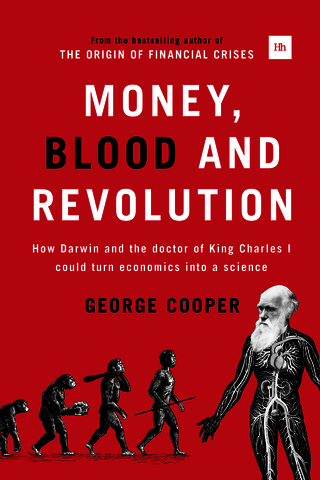How Darwin and the doctor of King Charles I could turn economics into a science.
Executive summary
If you are confused by economics, then you should read this book. If you are not confused by economics, then you really, really need to read this book.
The book is inexpensive, not very long, and it’s important — there is no reason not to read it and good reason to read it (including some splashes of humor).
Structure
The book starts by explaining four seemingly random scientific revolutions:
- The earth goes around the sun, rather than vice versa
- Blood circulates in the body
- Natural selection via survival of the fittest
- Continental drift and plate tectonics
By the end of the book we see that this isn’t such a random selection of scientific issues after all.
Then there is a chapter that explains the viewpoints of the various economic schools. This is the clearest explanation of the economic camps that I’ve ever seen — it erased several points of confusion for me.
Finally, a synthesis of the warring factions is proposed that explains many of the anomalies. George calls this the circulatory growth model. It must be a good model — there’s something in it for pretty much everyone to hate.
Blindness
People tend to ignore what their theories don’t explain. Economists have learned this well:
- luxury goods should not exist
- I should always buy the cheapest of anything
- the size of my neighbor’s television shouldn’t affect the size of television I want
- economic growth should be more randomly scattered through time, and location
But there is one thing that is ignored in spectacular fashion — government spending. Many economists act as if government doesn’t exist at all. There’s a disease like that:
Patients with unilateral neglect behave not only as if nothing were actually happening in the left hemispace, but also as if nothing of any importance could be expected to occur there.
— from The Man Who Mistook His Wife For A Hat by Oliver Sacks
Quotes
It appears that we humans cannot accept having no theory … we cannot be persuaded to step from a wrong theory into the abyss while we wait for a better theory to come along. This is why, regardless of how many times the behaviour of the economy refutes current economic theory, that theory will not be rejected until a better model is proposed.
… small government, light regulation and low taxation is the economic condition that has persisted across most of the world through all of history. Why then has the world not been plagued by a permanent growth-boom lasting thousands of years?
In 2008… everyone suddenly rejected the silly notion of an inherently stable economy and embraced Minsky’s idea of an inherently unstable economy … In the years since 2008, Minsky has been forgotten and the herd has quickly drifted back to recolonise the neoclassical zone, conveniently forgetting that it ever left.
… to understand and describe [our current economy] cannot be achieved by building abstract models of imaginary alternate economies, where governments are absent, markets are perfect and people act as machines rather than humans.
Favorite sentence
With democratic capitalism we have inadvertently stumbled upon a system that lets us exploit the best of our competitive nature while managing the worst of our selfish nature. We should celebrate this triumph.
Quibbles
I think that the dissipation of the happiness of lottery winners is a more complex phenomenon than the book implies.
Great as it is, I think there is something missing from the circulatory growth model. I’m not sure what is missing though.
Related books
I’ve reviewed The Origin of Financial Crises, George’s previous book. The books are related, but I don’t see that it matters which you read first.
A great book that is surprisingly not referenced is The Truth about Markets by John Kay. This supports the argument that suitable institutions are necessary for economic growth.
Follow-up action
Kuhn’s final blow to the ego of scientists was his observation that the vanguard of the new paradigm is usually led by non-expert outsiders. These outsiders are often thoroughly frustrated with the confusion of the old order and eager to accept the clarity of a new idea.
If Kuhn is correct, then we can’t leave it to economists to sort themselves out. The stakes of getting economics right can’t be higher.
Suggested next steps:
- Read George’s blog
- Follow George on Twitter: @george_cooper__
- Tell your friends
Epilogue
Brian: You’ve got to think for yourselves. You’re all individuals.
Crowd (in unison): Yes, we’re all individuals.
Brian: You’re all different.
Crowd (in unison): Yes, we’re all different.
Lone voice: I’m not.
from The Life of Brian by Monty Python


Pingback: The Whole Street’s Daily Wrap for 9/28/2014 | The Whole Street